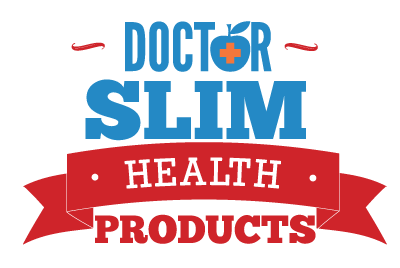Dr. Slim Vitamin B12 Drops
$ 0.00
Vitamin B12 is a water-soluble vitamin that is naturally present in some food, added to others, and available as a dietary supplement and a prescription medication. Vitamin B12 exists in several forms and contains the mineral cobalt, so compounds with vitamin B12 activity are collectively called “cobalamins”. Methylcobalamin and 5-deoxyadenosylcobalamin are the forms of vitamin B12 that are active in human metabolism.
Vitamin B12 is required for proper red blood cell formation, neurological function, and DNA synthesis. VitaminB12 Functions as a cofactor for methionine synthase and L-methylmalonyl- CoA mutase. Methionine synthase catalyzesthe conversion of homocysteine to methionine. Methionine is required for the formation of S-adenosylmethionine, a universal methyl donor for almost 100 different substrates, including DNA, RNA, hormones, proteins, and lipids. L- methylmalonyl-CoA mutase converts L-methylmalony-CoA to succinyl-CoA in the degradation of propionate, an essential biochemical reaction in fat and protein metabolism. Succinyl-CoA is also required for hemoglobin synthesis.
Vitamin B12, bound to protein in food, is released by the activity of hydrochloric acid and gastric protease in the stomach . When synthetic vitamin B12 is added to fortified foods and dietary supplements, it is already in free form and, thus, does not require this separation step. Free vitamin B12 then combines with intrinsic factor, a glycoprotein secreted by the stomach's parietal cells, and the resulting complex undergoes absorption within the distal ileum by receptor-mediated endocytosis. Approximately 56% of a 1 mcg oral dose of vitamin B12 is absorbed, but absorption decreases drastically when the capacity of intrinsic factor is exceeded (at 1–2 mcg of vitamin B12).
Pernicious anemia is an autoimmune disease that affects the gastric mucosa and results in gastric atrophy. This leads to the destruction of parietal cells, achlorhydria, and failure to produce intrinsic factor, resulting in vitamin B12 malabsorption. If pernicious anemia is left untreated, it causes vitamin B12 deficiency, leading to megaloblastic anemia and neurological disorders, even in the presence of adequate dietary intake of vitamin B12.
Vitamin B12 status is typically assessed via serum or plasma vitamin B12 levels. Values below approximately 170–250 pg/mL (120–180 picomol/L) for adults indicate a vitamin B12 deficiency. However, evidence suggests that serum vitamin B12 concentrations might not accurately reflect intracellular concentrations. An elevated serum homocysteine level (values >13 micromol/L) might also suggest a vitamin B12 deficiency. However, this indicator has poor specificity because it is influenced by other factors, such as low vitamin B6 or folate levels. Elevated methylmalonic acid levels (values >0.4 micromol/L) might be a more reliable indicator of vitamin B12 status because they indicate a metabolic change that is highly specific to vitamin B12 deficiency.
All B vitamins help the body convert food (carbohydrates) into fuel (glucose), which is used to produce energy. These B vitamins, often referred to as B complex vitamins, also help the body use fats and protein. B complex vitamins are needed for healthy skin, hair, eyes, and liver. They also help the nervous system function properly.
Vitamins B12, B6, and B9 work together to control blood levels of the amino acid homocysteine. High levels of homocysteine are associated with heart disease. However, researchers aren't sure whether homocysteine is a cause of heart disease or just a marker that indicates someone may have heart disease.
It’s rare for young people to be deficient in vitamin B12, but it’s not uncommon for older people to be mildly deficient. That may be because their diets are not as healthy or because they have less stomach acid, which the body needs to absorb B12. Low levels of B12 can cause a range of symptoms including fatigue, shortness of breath, diarrhea, nervousness, numbness, or tingling sensation in the fingers and toes. Severe deficiency of B12 causes nerve damage.
Others at risk for B12 deficiency include:
- *Vegans, vegetarians who also don't eat dairy or eggs -- vitamin B12 is found only in animal products
- *People with problems absorbing nutrients, due to conditions such as Crohn’s disease, pancreatic disease, and people who have had weight loss surgery
- *People who are infected with Helicobacter pylori, an organism in the intestines that can cause an ulcer. H. pylori damages stomach cells that make intrinsic factor, a substance the body needs to absorb B12
- *People with an eating disorder
- *People with HIV
- *The elderly
Folic acid (vitamin B9), especially when taken in high doses, can mask the symptoms of a vitamin B12 deficiency. The danger is that without symptoms, someone with a vitamin B12 deficiency may not know it, and could run the risk of developing nerve damage. Anyone planning to take more than 800 mcg of folic acid should talk to their doctor first, to make sure they do not have a B12 deficiency.
Pernicious Anemia
Pernicious anemia is a type of anemia that happens when stomach cells are not able to make intrinsic factor. Without intrinsic factor, your body cannot absorb vitamin B12. Symptoms include weakness, pale skin, diarrhea, weight loss, fever, numbness or tingling sensation in the hands and feet, loss of balance, confusion, memory loss, and moodiness. Vitamin B12 supplements in high doses, either given as injections or orally, are prescribed to treat pernicious anemia. Pernicious anemia can be a dangerous condition and should always be treated by a doctor.
Heart Disease
Cardiovascular disease is the most common cause of death in industrialized countries, such as the United States, and is on the rise in developing countries. Many studies suggest that people with high levels of the amino acid homocysteine are roughly 1.7 times more likely to develop coronary artery disease and 2.5 times more likely to have a stroke than those with normal levels. Homocysteine is a sulfur-containing amino acid derived from methionine that is normally present in blood. Elevated homocysteine levels are thought to promote thrombogenesis, impair endothelial vasomotor function, promote lipid peroxidation, and induce vascular smooth muscle proliferation. B complex vitamins -- especially vitamins B9, B6, and B12 -- help lower homocysteine levels. However, researchers don’t know whether high homocysteine levels actually cause heart disease. For most people who are concerned about heart disease, the goal should be getting enough B vitamins from healthy foods. In some cases, however, your doctor may recommend taking B vitamins to lower homocysteine levels. If you are worried about heart disease, ask your doctor whether taking a B vitamin supplement would be right for you.
Age-Related Macular Degeneration
One large study found that women who took 1,000 mcg of vitamin B12 along with 2500 mcg of folic acid and 500 mg of vitamin B6 daily reduced their risk of developing AMD, an eye disease that can cause loss of vision.
Fatigue
Fatigue is one of the symptoms of a vitamin B12 deficiency. One small study, done several years ago, suggested that some people who were not deficient in B12 might gain more energy from B12 shots. However, more research is needed. One preliminary study indicated that people with chronic fatigue syndrome might benefit from B12 injections, although more research is needed to know for sure. The federal government's 2010 Dietary Guidelines for Americans notes that "nutrients should come primarily from foods. Foods in nutrient-dense, mostly intact forms contain not only the essential vitamins and minerals that are often contained in nutrient supplements, but also dietary fiber and other naturally occurring substances that may have positive health effects. ...Dietary supplements...may be advantageous in specific situations to increase intake of a specific vitamin or mineral." By taking vitamin B12 more often, there are a variety of benefits that you will receive. Here are some ways that vitamin B12 can help you and your body.
- Help produce DNA in your body
- Reduces risk of Pernicious Anemia
- Enables your body to grow and develop naturally
- Maintains energy levels
- Supports mental and emotional stability




